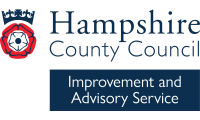KS4 Writing Journey - Identity, Self and Society
This short writing journey is intended for use at Key Stage 4. Please note that if adapting for KS3, extracts from How to Be a Woman by Caitlin Moran should be carefully selected; the text as a whole is more suitable for older readers.
At KS4, planning for writing can be limited due to pressure on curriculum time and students’ main regular experience of writing can be through exam-style task practice. The units in this series of writing journey planning for KS4 are intended to support improvements in students’ writing through explicit teaching and the use of rich textual extracts as both stimulus for ideas and models for writing.
The focus for this series of KS4 writing journeys is on structural and cohesive features of texts and the adaptation of sentence structures for effect. These elements have been identified as being key to success in writing at GCSE, as well as being noted areas for improvement for many students.
Each of the KS4 writing journeys planned has a loose thematic link to the majority of the key texts specified for GCSE English Literature, meaning that these units can be integrated into planning linked to a literature text, either at a key moment in the text or once study has been completed. They can also be used as a bridging unit between two or more literature texts or adapted as stand-alone units in preparation for narrative/descriptive writing at GCSE.
In this writing journey, the stimulus texts are extracts from the opening chapter of How to Be a Woman by Caitlin Moran (Ebury Press, 2011) and the written version of the TEDX talk We Should All be Feminists by Chimamanda Ngozi Adichie (Fourth Estate, 2014). Both texts explore ideas about feminism, culture and identity; ideas about personal identity and the self are central to many of the GCSE English Literature texts, as are the patriarchy, gender roles/stereotypes and the oppressive expectations raised by social norms.
